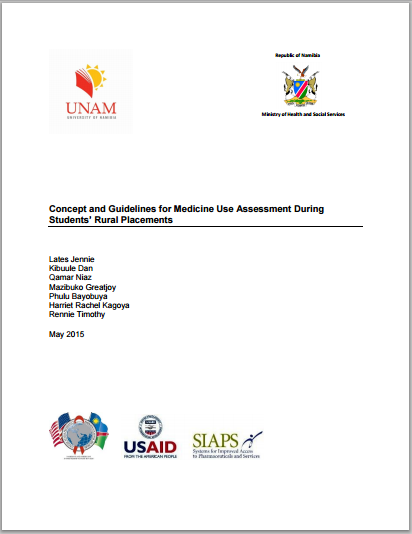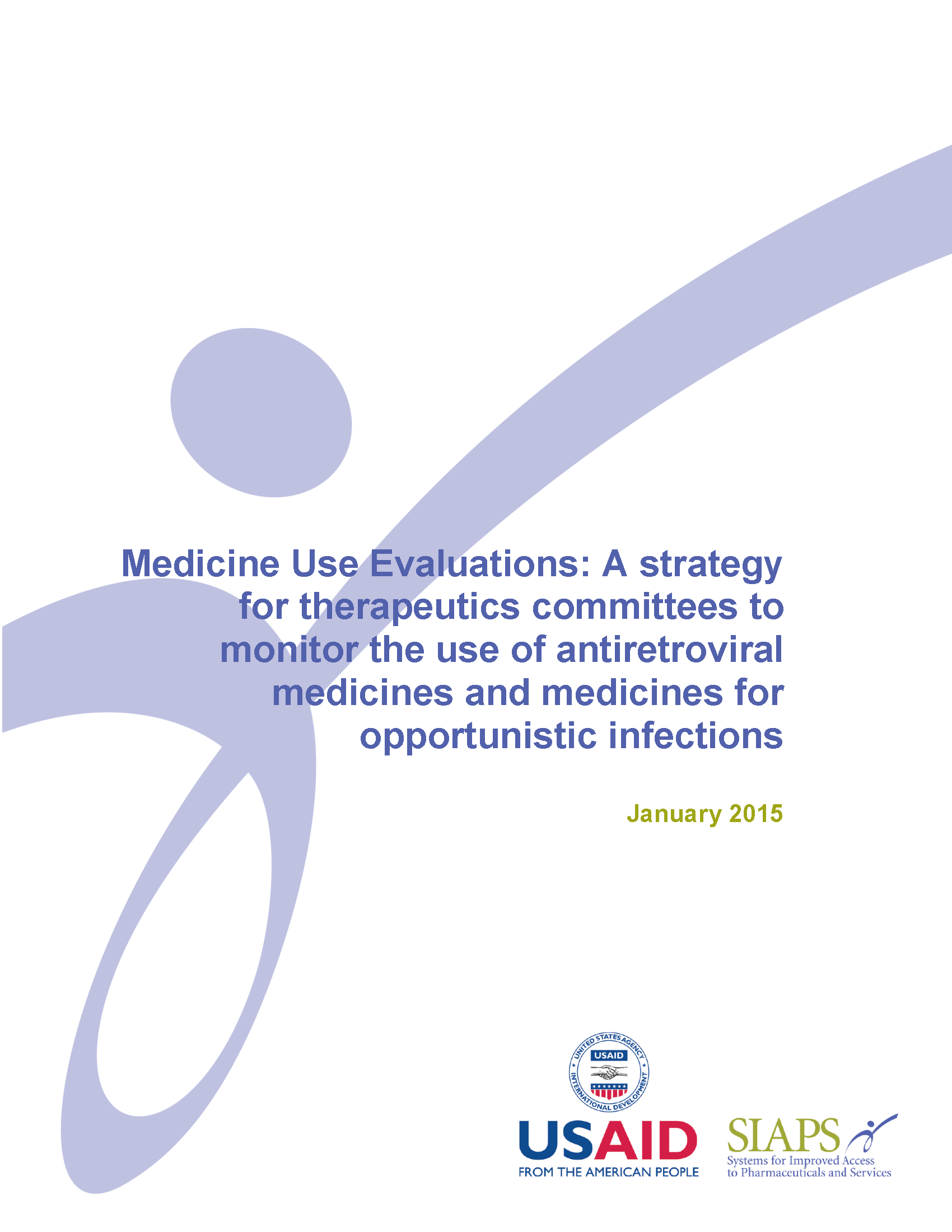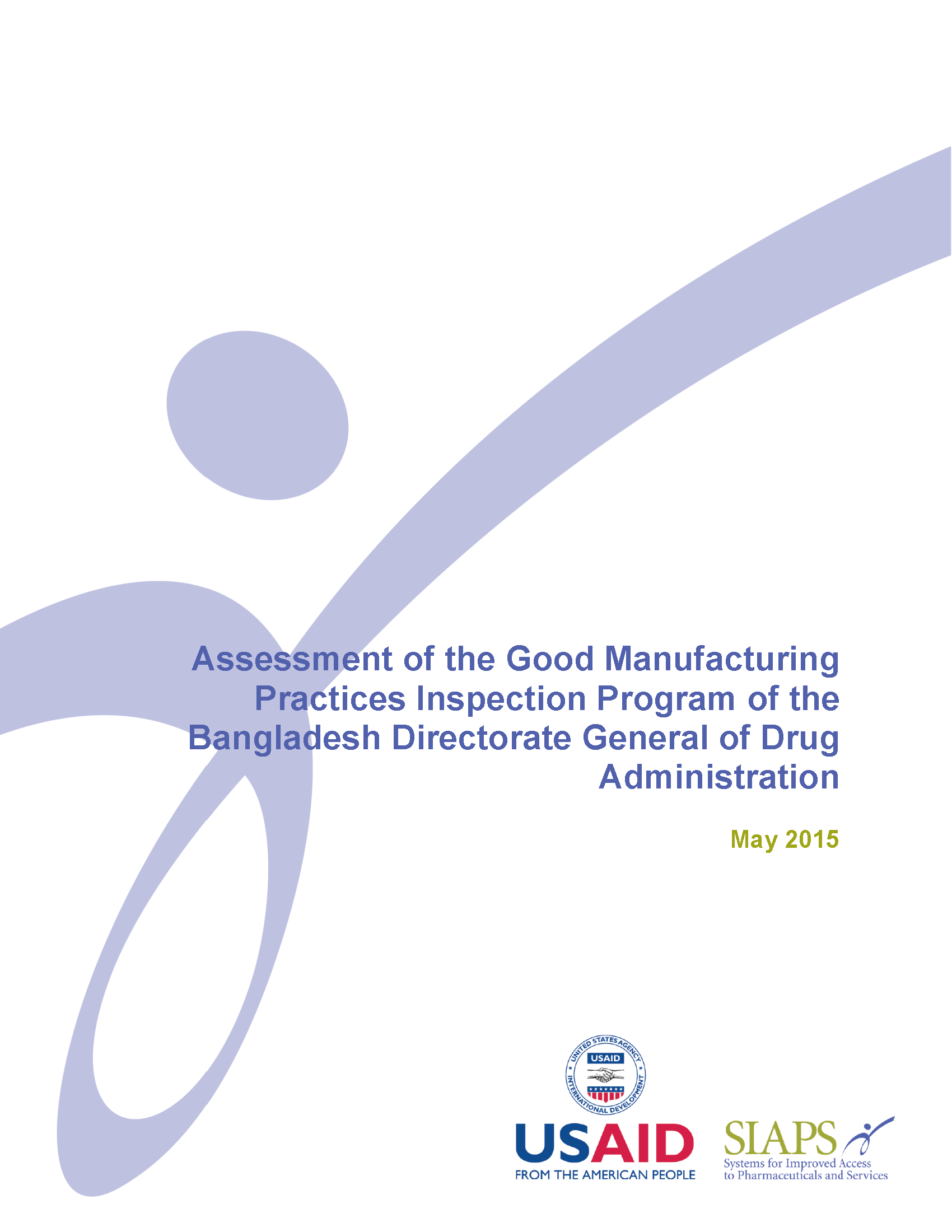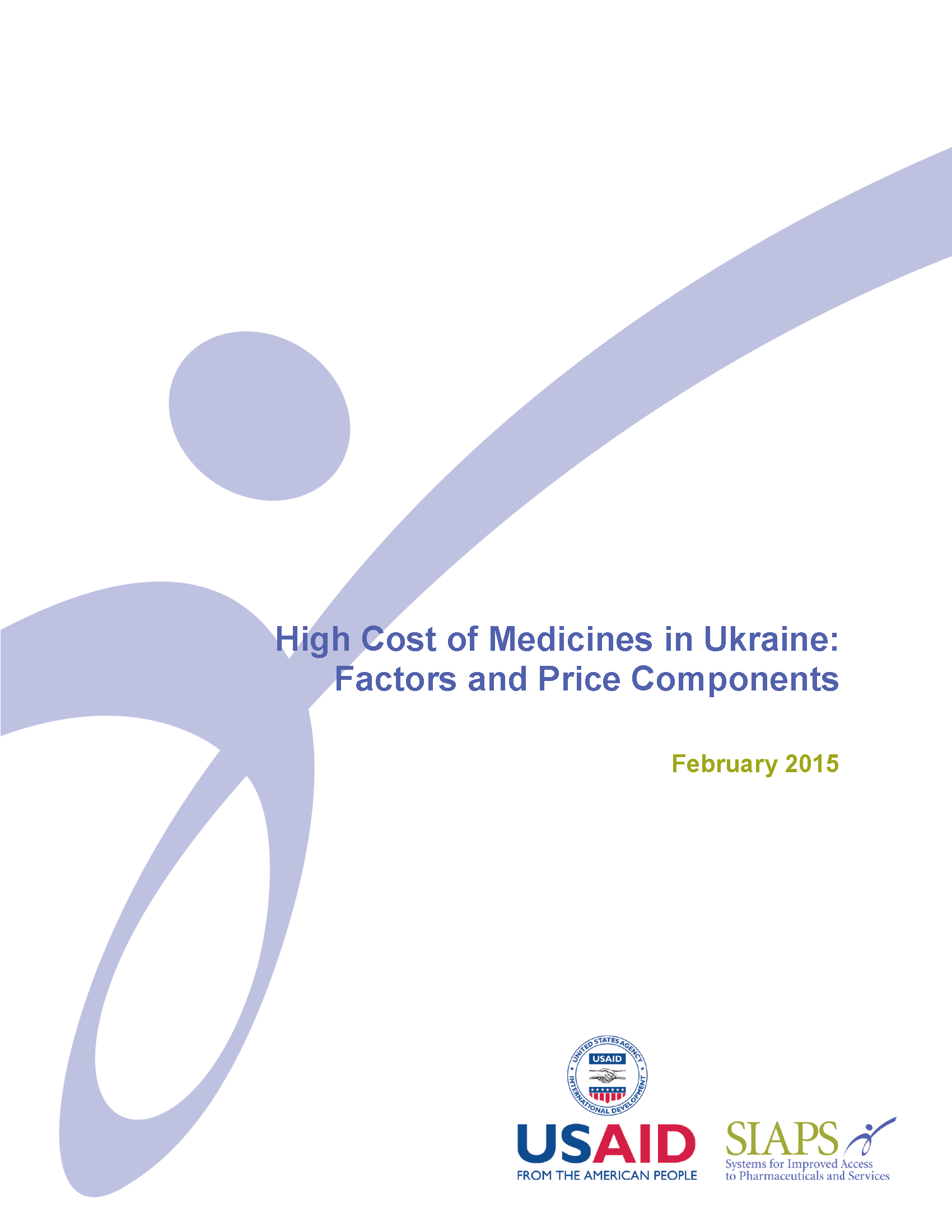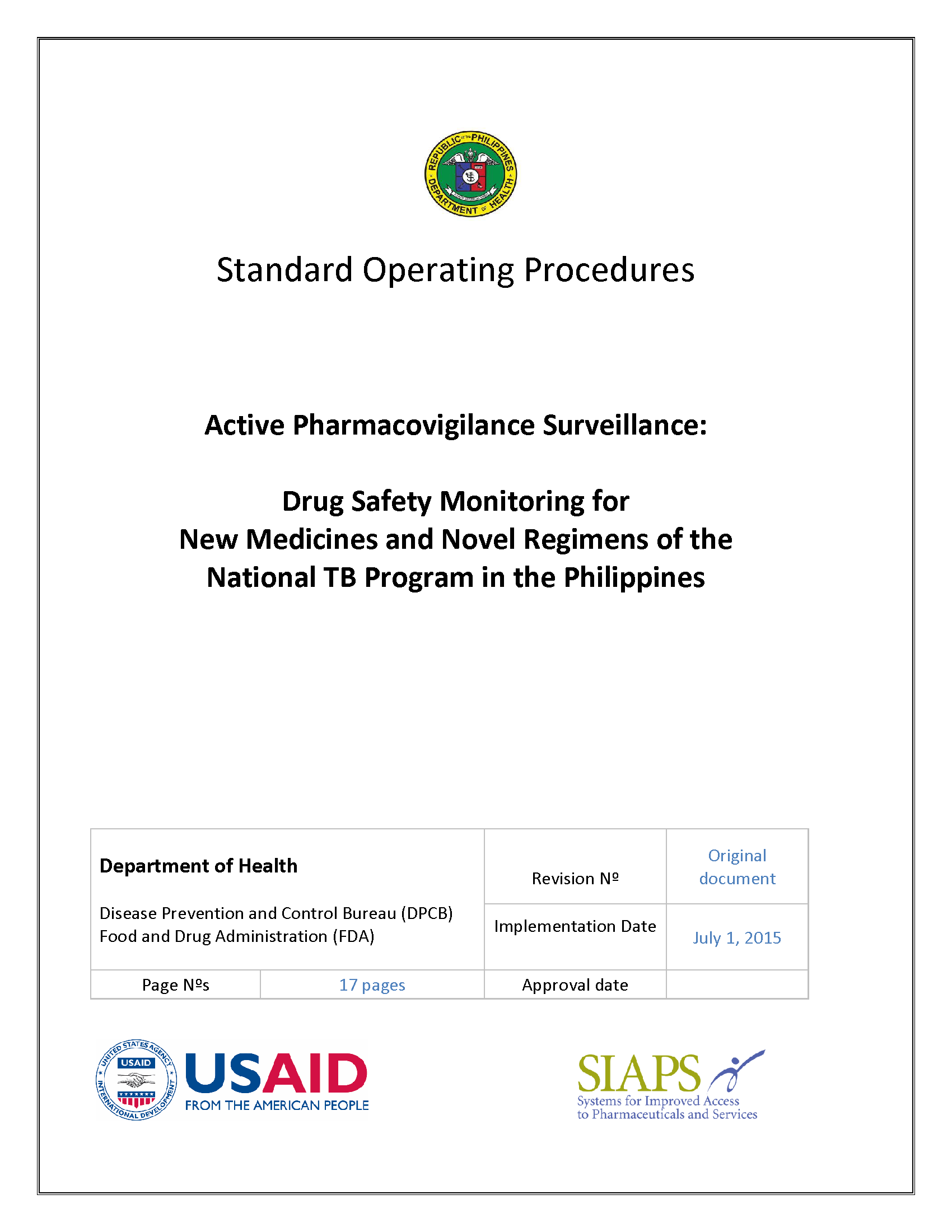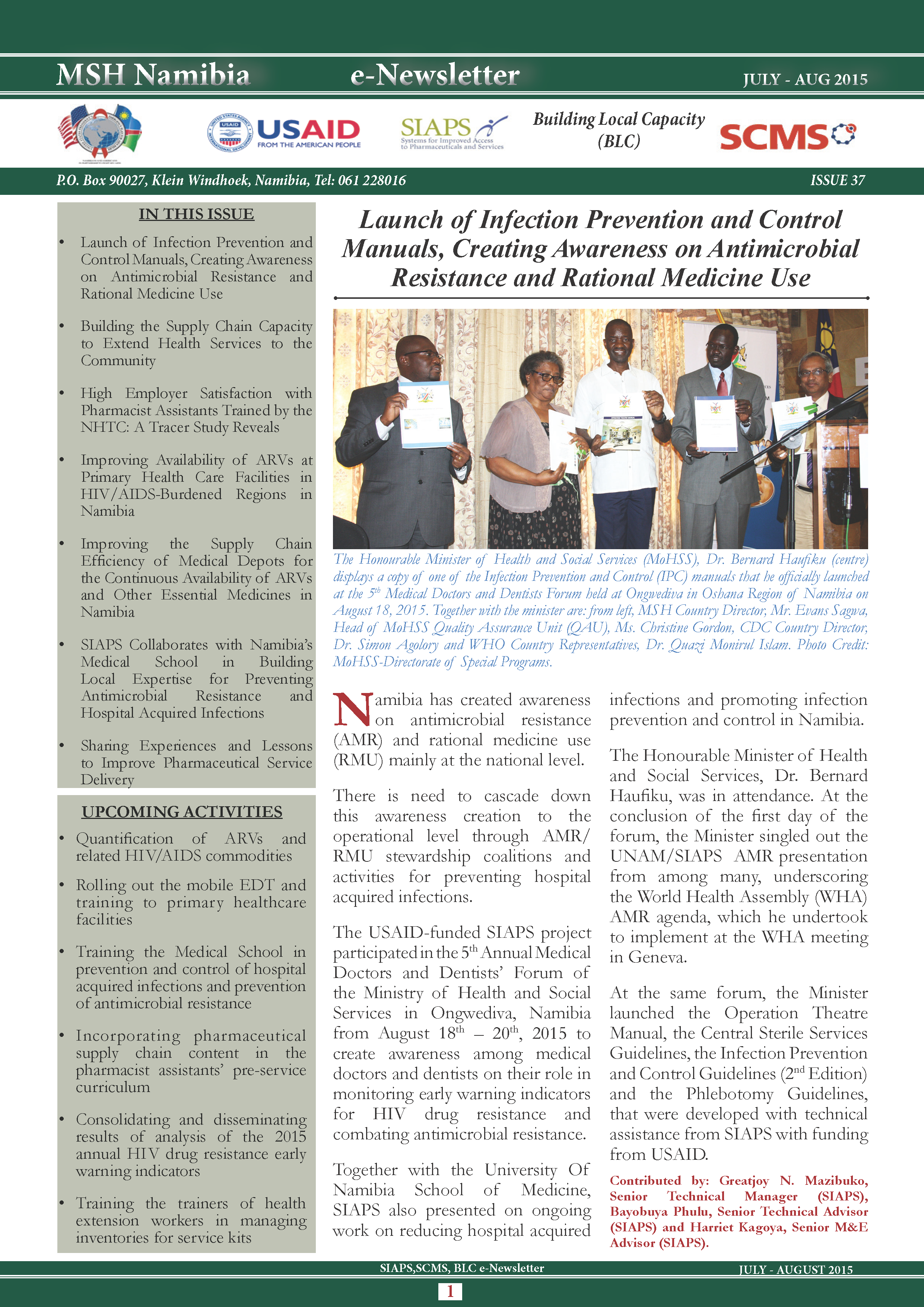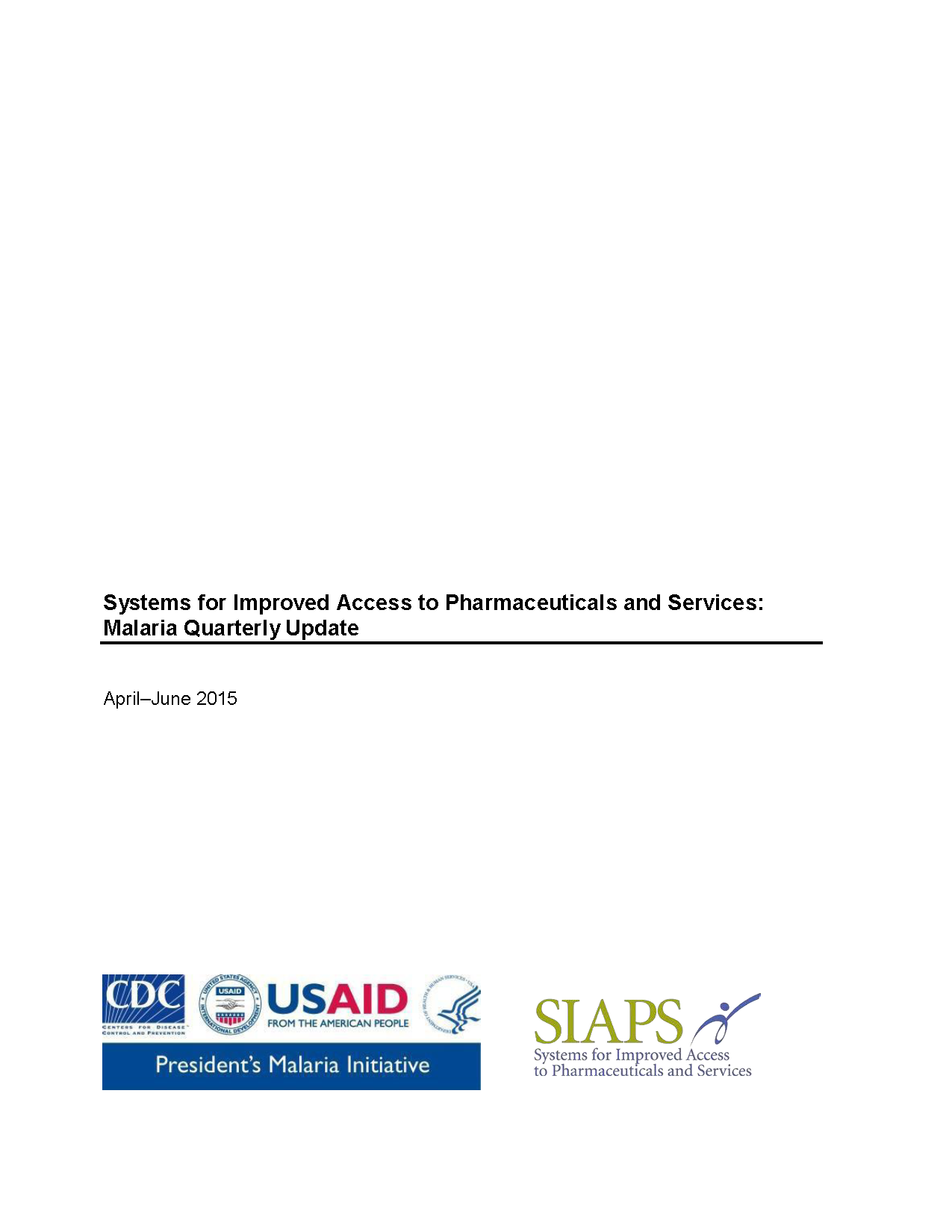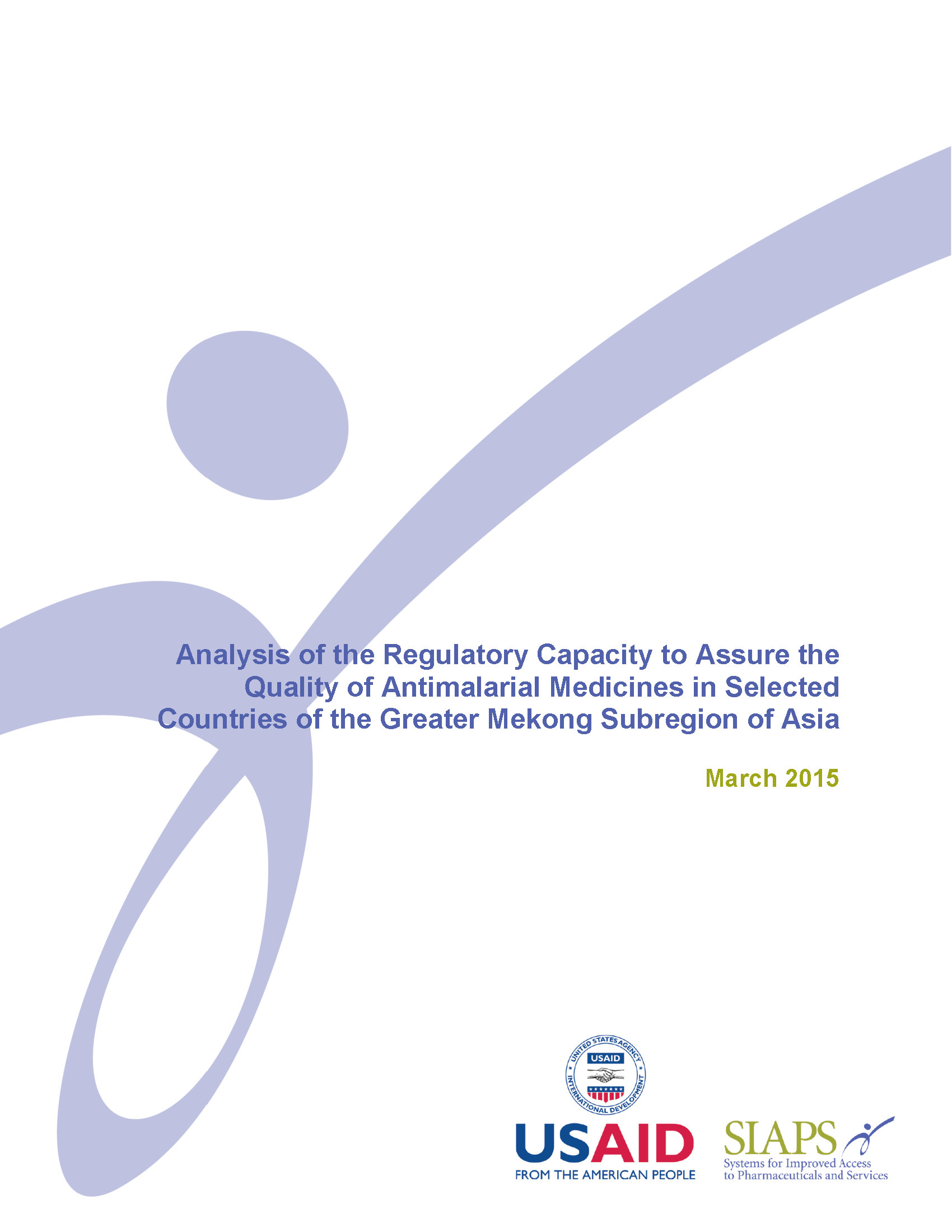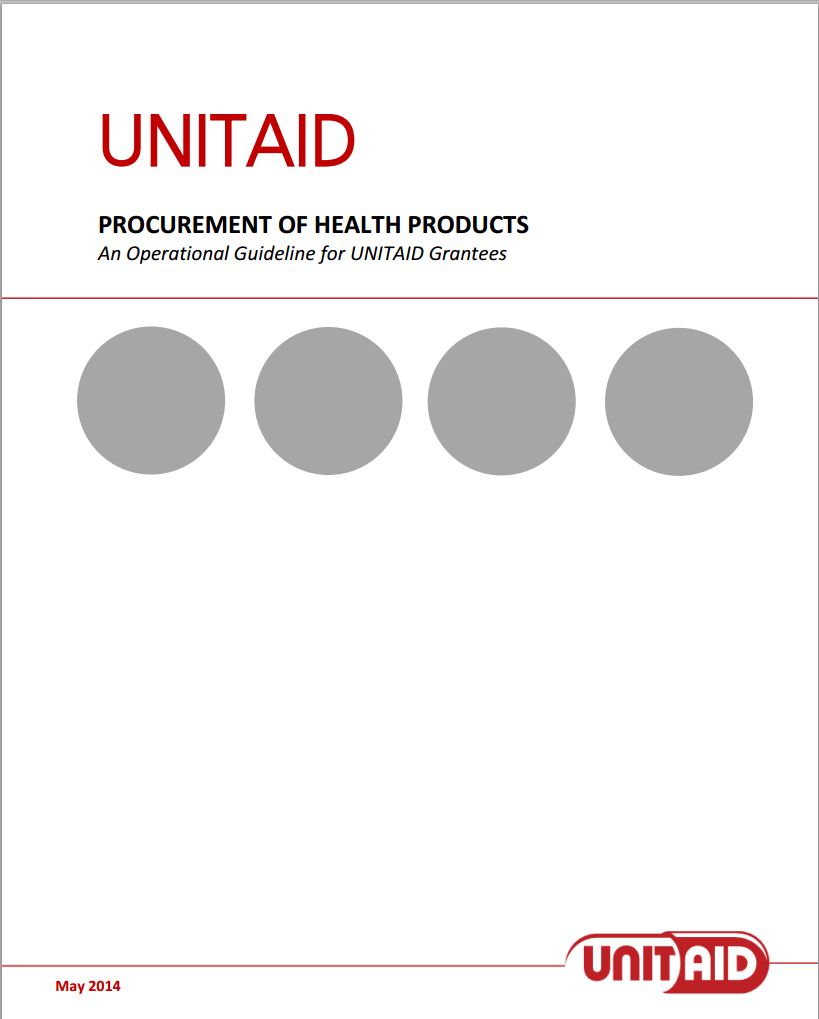This document provides a background and basic guidance to medicine use data collection to be undertaken by University of Namibia School of Pharmacy second-year students during their placement in rural health facilities. In 2012, UNAM-SoP introduced 4-week placements at health facilities located in rural communities for pharmacy students as part of their practical training. This … Read more
Nfor E. Practical Difficulties of Delivering Medicines Where Infrastructure Does Not Exist. Session presentation at the 75th International Pharmaceutical Federation (FIP) World Congress, Dusseldorf, Germany, 29 September to 3 October 2015.
This manual is intended to assist therapeutic committees (TCs) in monitoring medicine use in their health facilities through regular medicine use evaluations (MUEs). The manual lists and describes the various steps involved in conducting an MUE. It also: describes the conditions of rational use of medicines (RUM) describes the extent and nature of the inappropriate … Read more
As a part of its ongoing support to build the capacity of the DGDA, the Systems for Improved Access to Pharmaceuticals and Services (SIAPS) team conducted a rapid assessment of the capacity of the Good Manufacturing Practices (GMP) inspection program at the Directorate General of Drug Administration (DGDA). GMP is part of the quality assurance … Read more
Assessment, Bangladesh, Directorate General of Drug Administration, E Kim, Good Manufacturing Practices (GMP), governance, Inspection, J Aimiuwu, M Thumm, MH Anisfeld, Quality Assurance, regulations, SOPs
Medicine prices are a contentious issue, with many products arguably unaffordable, even in developed countries, where, on average, approximately 10% of the health budget is spent on medicines. But in low- and middle-income countries, that figure is usually substantially higher, reflecting both limited resources and generally inefficient public health systems. Given that a sizable proportion … Read more
The purpose of this standard operating procedure is to outline a step-by-step approach for undertaking active drug safety monitoring for the 9-month MDR-TB treatment regimen and other novel medications and regimens for TB and MDR-TB.
In this issue: Launch of Infection Prevention and Control Manuals, Creating Awareness on Antimicrobial Resistance and Rational Medicine Use Building the Supply Chain Capacity to Extend Health Services to the Community High Employer Satisfaction with Pharmacist Assistants Trained by the NHTC: A Tracer Study Reveals Improving Availability of ARVs at Primary Health Care Facilities in HIV/AIDS-Burdened Regions in Namibia Improving the Supply Chain Efficiency of Medical … Read more
According to the World Health Organization (WHO), 1 malaria mortality rates fell by 47% globally, and by 54% in Africa between 2000 and 2013. During this period, an estimated 4.3 million malaria deaths were averted globally, primarily as a result of the scale-up of interventions. However, much remains to be done. Although 55 countries are … Read more
Angola, Democratic Republic of Congo, DRC, Ethiopia, Guinea, Logistics Management Information System, Malaria., Mali, PMI, Quantification, South Sudan, Training
SIAPS conducted a review of regulatory and quality assurance efforts in the GMS with the following objectives— To inform PMI of past and current initiatives to improve the capacity of the region to combat counterfeit, substandard, and banned antimalarial medicines To understand the current barriers to effective medicine quality control for malaria To recommend specific … Read more
Assessment, B Santoso, D Lee, E Kim, governance, Malaria., pharmaceutical regulations, PMI, Product Quality, Quality Assurance, Technical Report
UNITAID is a global health initiative, established to provide sustainable, predictable, and additional funding to significantly impact market dynamics to reduce prices and increase the availability and supply of high-quality commodities for the prevention, diagnosis, and treatment of HIV and AIDS, malaria, and tuberculosis (TB), primarily for people living in low-resource settings. The SIAPS Program … Read more
